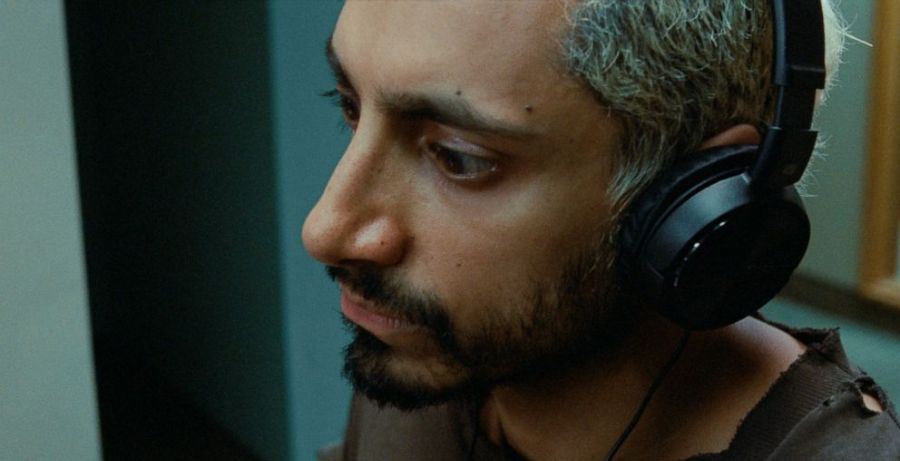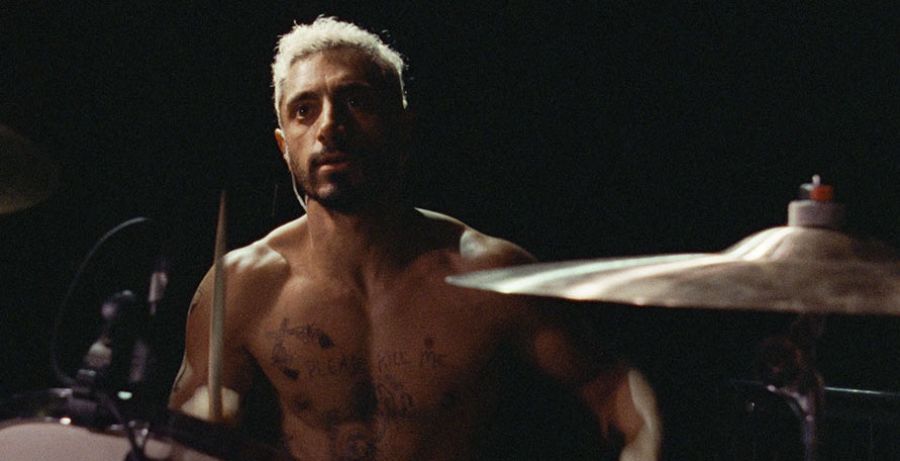Despite COVID-19, the slate of films that have been released this year, especially on streaming platforms have been substantial. Amazon Studios’ Sound of Metal is yet another gem. Directed by Darius Marder, and co-written by Marder and Abraham Marder, the film stars Riz Ahmed in the lead role with Olivia Cooke, Paul Raci, Lauren Ridloff, Shaheem Sanchez, and Chelsea Lee as a part of the supporting cast.
An intimate portrait, Sound of Metal follows Ruben, a punk-metal drummer who over a series of adrenaline-fueled gigs begins to experience hearing loss. When a specialist tells him his condition will rapidly worsen, he thinks his music career — and with it, his life — is over. Ruben immediately sees his world fall out from under him, scared for the future and also a recovering addict, his bandmate and girlfriend Lou (Olivia Cooke) checks him into a secluded sober house for the deaf in hopes it will prevent relapse. But the sober house is not just about connecting him to a larger community to keep him from relapse, no, it’s about connecting him to the deaf community. To put it simply, as Joe (Paul Raci), the leader of the house does, Ruben’s only task, in the beginning, is to learn how to be deaf.
Sound of Metal makes it clear that deafness is not something to be fixed nor lamented. It is something that connects deaf individuals to a culture and a larger community around them. Through sound design, we’re shown how Ruben is interpreting the world around him. We hear the sounds become muffled as he begins to lose his hearing. We’re immersed in his unease and fear as we’re put in his position. And as he transitions to life in the sober house, that is carried through here. At first, the silence is what we focus on, and Ruben’s discomfort in it. That said, cleverly, Marder switches perspective. He pulls out of Ruben’s discomfort and shows us his new community. Filled with life and communication and even if we can’t understand them, as Ruben can’t, it’s clear that nothing is missing. This is most clearly on display when during a sequence filmed at a dinner table.
Ruben is isolated, or rather, he feels like he is. Still new to the sober house and his deafness as well, we’re immersed in his loneliness. It is a sad moment, with the camera panned in close on Ahmed’s face while we hear a muffled world around him that hums. And then Marder shows us the dinner table as we would see it from an average Joe’s perspective. It’s a loud table filled with joy, love, energy, and communion. And it’s the first time in the film when I realize that this is a film not made for me. I know that may come off negatively but I mean it in the most wholesome and respectful ways. The film’s spoken parts are subtitled throughout the film and the sign language isn’t.
This is an element that showcases the target audience of the film. And I can imagine that for deaf viewers, it will make them feel seen. In the same way, the untranslated Spanish in Spider-Man: Into the Spider-verse or Seis Manos made me feel like the stories I was watching had me in mind, had my community at the heart of their narratives.

Ruben’s journey through the film is a way for viewers to come to understand being deaf, what it is, and what it is not. And as he adapts to his new life with a community that accepts him exactly as he is, he has to make a choice. Does he try to reclaim a life he once knew by seeking cochlear implants or does he accept his place within a culture larger than himself and throw away the ableist misconceptions of what it means for him to be deaf. His growth throughout the film is about learning that his life is still intact, even if it is different. As viewers, we’re shown the moments that he finds music again, that he feels it, seeks comfort in it, even if it’s different than before.
The strongest element of Sound of Metal is that Ruben’s journey is captured beautifully not just through visuals but through its sound and silence. The balance of recreating what hearing loss sounds like, how the brain interprets the sounds of the world when implants are involved, and ultimately what the world is like from that perspective is breathtaking and vivid. Additionally, the beauty of this film is propelled by its use of deaf and CODA (Children of Deaf Adults) in roles as well in consultative capacities to capture the deaf community and display in a way that hasn’t really been represented in cinema.
For example, Raci who plays Joe is a CODA, (Child of Deaf Adults), a Court Certified American Sign Language interpreter, a musician, and the lead singer for the Hands of Doom ASL ROCK, a band that performs in American Sign Language. Lauren Ridloff, who plays, Diane, an elementary school teacher who helps teach Ruben, is a former Miss Deaf America, a 2018 Tony-nominated Broadway performance, and the first deaf actress in a superhero film. Additionally, the cast includes YouTube content creator and dancer Shaheem Sanchez who is also deaf. The diversity shown in those chosen to represent this deaf community on screen must be called out and applauded.
With all of that said, Ahmed’s performance is one of the most emotional windows that I have ever seen on film and the best of the year. His fear. His pain. And ultimately, his acceptance radiates from the film like a warm glow. You’re pulled into Ruben’s life through Ahmed’s visceral performance and you can’t help but go on the journey with him.
Sound of Metal is a phenomenal film, a perfect film truly. It’s sound design, dialogue, and performances deliver an immersive experience that stays with you. But more importantly, it pushes you to walk away with a better understanding of a community and a culture you may not have known before, and it does so by telling a story that isn’t about “overcoming” or “fixing” anything. It’s a story about being. About living. It’s a story about community and where you fit, and that’s its power.
Sound of Metal is available for streaming on Prime Video.
Sounds of Metal
-
Rating - 10/1010/10
TL;DR
Sound of Metal is a phenomenal film, a perfect film truly. It’s sound design, dialogue, and performances deliver an immersive experience that stays with you. But more importantly, it pushes you to walk away with a better understanding of a community and a culture you may not have known before, and it does so by telling a story that isn’t about “overcoming” or “fixing” anything. It’s a story about being. About living. It’s a story about community and where you fit, and that’s its power.







